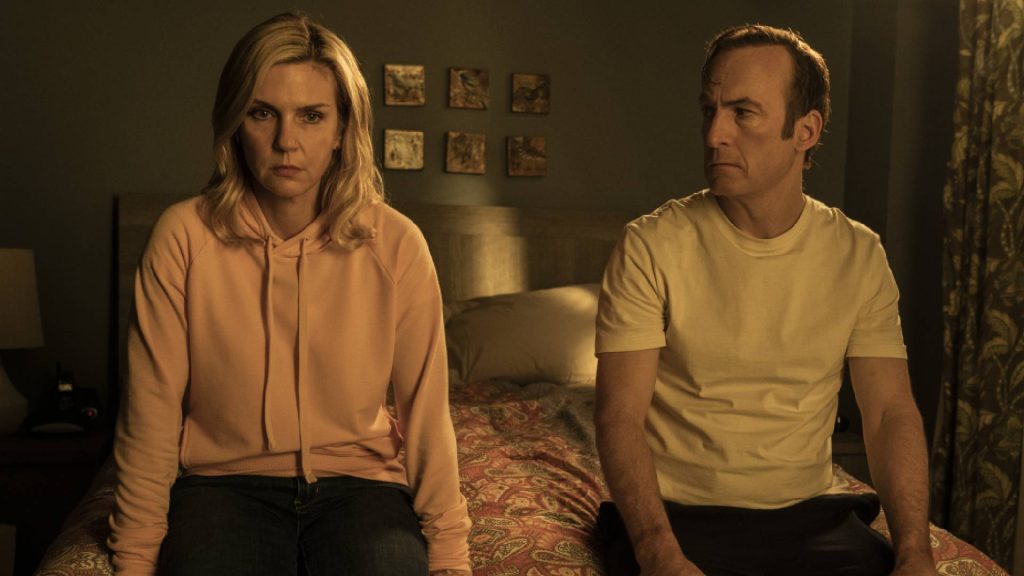You may have been excused for wondering if there would ever be another show as outstanding as the legendary Breaking Bad. Some people expressed concern when it was announced that Saul Goodman would be the subject of a spinoff, but Better Call Saul has shown season after season that it is a worthy successor and deserving of its own spot next to Breaking Bad. The sixth and final season, which seamlessly blends into the Breaking Bad universe, offers resolution to some of the best-written television characters. It’s debatable whether Better Call Saul belongs in the conversation of all-time great television programs, but there’s no denying that it’s among the finest spin-offs.
The sixth and final season of Better Call Saul, which served as both a prequel and a sequel to Breaking Bad, had the onerous burden of retaining the momentum of the series from earlier seasons and mending a cross-over into the world of Walter and Jesse. The finest element of this last season is how it starts with incidents that appear just passingly connected to Jimmy McGill/Saul Goodman, the main character, but as the episodes go on, things start to get extremely personal. The key question is whether Saul Goodman’s misdeeds catch up with him. Or does he still possess a cunning trick?
The first episode of the series focuses on how Saul (Bob Odenkirk) and Kim (Rhea Seehorn) attempt to damage Howard’s (Patrick Fabian) reputation, while Nacho (Michael Mando) faces consequences for attempting to assassinate Lalo (Tony Dalton), who is back with fury to take down Gus Fring (Giancarlo Esposito). At the conclusion of Season 6 Part 1, when both realities converge, Jimmy’s reality begins to fall apart. In Part 2, Jimmy, under the identity of Gene Takavic, continues to test the limits of the law, but this time, we also learn that the character isn’t as self-centered as he is frequently portrayed as being.
Jimmy McGill experiences constant ups and downs, much like Walter White. As his time was running out, Walter was forced to gamble away his life. Jimmy, on the other hand, is forced to gamble and hustle (Howard refers to him as “Charlie Hustle”). Both characters suffer collateral harm, and Better Call Saul excels at not portraying Kim Wexler (a phenomenal Rhea Seehorn) only as Saul’s victim while giving us enough of a justification to characterize her as a heroine as well. Her role is more nuanced, and the actor excels at capturing the conflict Kim feels between leading a moral life and leading a fun one.
There is a lot of foreshadowing, as one would anticipate from a series that has also been written. Saul’s personal belongings are seized by police in the opening episode of this season, and a life-size standee of him is thrown into the trash. In the most recent episode, Jimmy was discovered hiding in a bin by authorities. Michael McKean’s brother Chuck McGill and Mike Ehrmantraut, two of the series’ many essential characters, are brought back into prominence in the final season (Jonathan Banks). The much-awaited appearances of Jesse Pinkman and Walter White take place, and Jimmy and Walter have a conversation about what they would do with a time machine. The responses include brief explanations of the characters’ individuality and the goals they each have.
Better Call Saul, in contrast to Breaking Bad, has never been about dramatic explosions or setpieces. There is a carefree attitude that permits more intense drama and invested performers. The series started out as a lighthearted, hilarious courtroom drama before evolving into an emotionally complex investigation of its several characters over the course of its six seasons. The judgment may be divided on whether this is even better than its parent material, Breaking Bad, but it is the gold standard for spin-off content and the reason for the web series format.
